Throughout life, many situations arise in which you may need to appoint someone to act for you in legal and financial matters. Purchasing property, executing contracts, and attending to your personal affairs if you become disabled all stand as reasons you might want to give a designated representative legal authority to act for you.
If you believe you may need a legally designated representative in the future, it’s helpful to understand the types of power of attorney: enduring and general. Your lawyer can assist you in establishing the appropriate power of attorney for your unique circumstances.
Main Takeaways:
- A general power of attorney document designates a representative you choose — known as an “attorney” — to handle your legal and financial matters.
- An enduring power of attorney document allows you to give authority to your designated representative should you become mentally disabled.
- If an attorney has been acting dishonestly, negligently or outside of his or her authority, his or her authority can be easily revoked if the person who granted the power remains mentally capable of understanding the nature and consequences of doing so.
What Is General Power of Attorney?
A general power of attorney document designates a representative you choose — known as an “attorney” — to handle your legal and financial matters. The Power of Attorney Act requires that a designated attorney must be a competent adult, at least 19 years of age. The law defines competency as understanding the purpose and possible outcomes of the power of attorney document at the time of signing.
You might use a general power of attorney document if you are traveling outside the country and want to designate someone in Canada to handle your financial matters while you are away. Often, friends or family members are appointed as attorneys in general power of attorney agreements. A lawyer, accountant or other professional also can be named as power of attorney.
General powers of attorney become invalid if the individual who requested the designation dies or becomes mentally incapacitated. You also can revoke the power of attorney with a written notice or by including an ending date or precipitating event in the power of attorney agreement.
What Is Enduring Power of Attorney?
As part of estate planning, many adults wish to appoint an individual who can take over their financial and legal affairs if they are unable. An enduring power of attorney document allows you to give authority to your designated representative should you become mentally disabled.
Enduring power of attorney documents must specify whether authority is granted only if you become incapable or, in addition, while you retain mental capacity. The law assumes that adults can make their own decisions about their legal and financial affairs, and it deems adults incapable only if they cannot understand those affairs or the essence of the enduring power of attorney agreement.
Choosing a Representative for Enduring Power of Attorney
An individual you name as enduring power of attorney should be someone you trust, since that person will have the authority to make critical legal and financial decisions for you. The law stipulates that the enduring power of attorney you choose:
- Cannot be a paid health care provider.
- Cannot be an employee in a facility in which you live and receive health care or personal care services.
- Can be your child, parent or spouse but must have reached adult age to act as power of attorney.
You also can name more than one individual as enduring power of attorney. If you name more than one person, they can be designated for different areas. If they are named for the same area, they must agree before acting on your behalf unless you stipulate otherwise.
Power of Attorney Problems
If a power of attorney has been acting dishonestly, negligently or outside of his or her authority, his or her authority can be easily revoked if the person who granted the power remains mentally capable of understanding the nature and consequences of doing so. However, if the person who granted the power of attorney no longer has the necessary mental capacity to make that decision, it may be necessary to apply to the Court to have a legal guardian known as a committee appointed in place of the power of attorney. There may be other options available to deal with a delinquent attorney including reporting the matter to the Public Guardian and Trustee. In addition, if the attorney has caused financial losses to the person who granted the power of attorney, a lawsuit may be brought against the power of attorney for damages.
For a consultation with a lawyer regarding a power of attorney problem, please contact McLarty Wolf at 604-687-2277.





You must be logged in to post a comment.